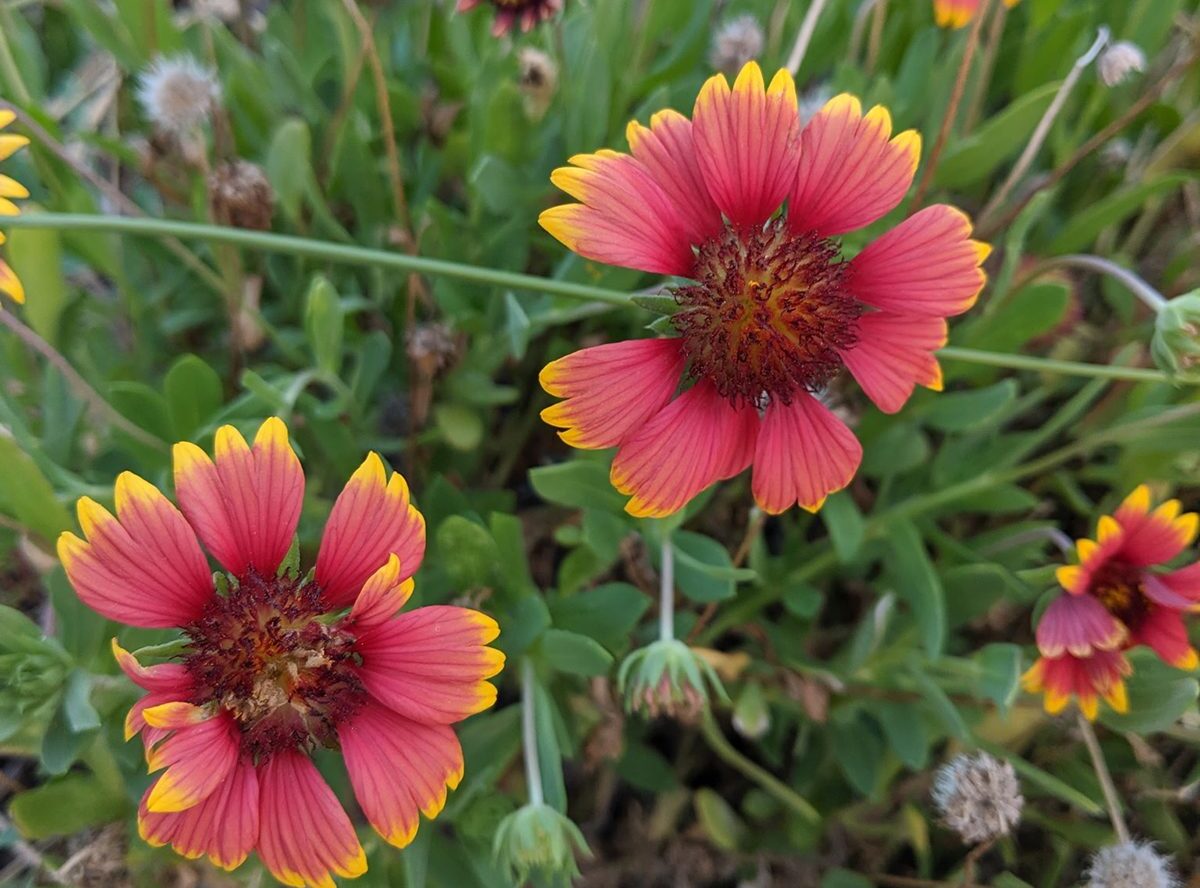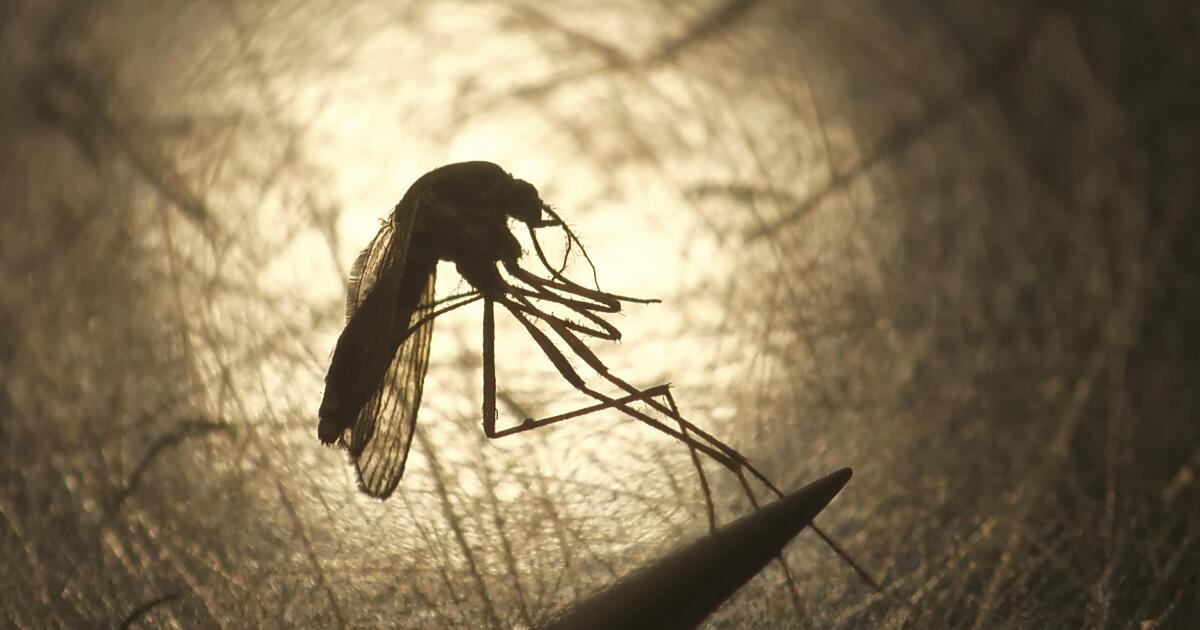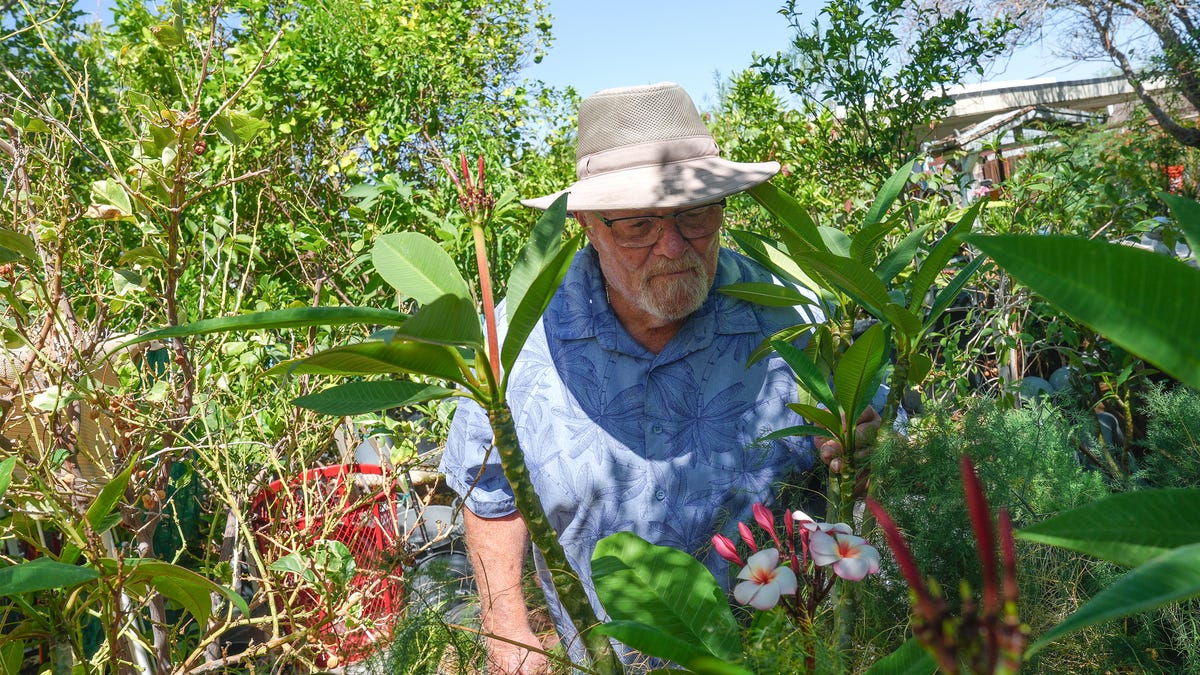The U.S. Centers for Disease Control and Prevention calls mosquitoes the “world’s deadliest animal.” It’s a weighty moniker for an insect that weighs just 2.5 milligrams, but it’s well deserved because vector-borne diseases, including those transmitted by mosquitoes, cause more than 700,000 deaths worldwide every year.
According to the University of Alaska, “the oldest mosquito fossil is believed to be from 79 million years ago,” though scientists believe those little buzzers have been sucking blood for 226 million years.
Numerous coroner reports have stated that mosquitoes were the prime suspects responsible for the death of the dinosaurs. Actually, I just made that up.
Clarence Schmidt
(Courtesy photo)
The National Institutes of Health estimated that there are over 3,500 species of mosquito, and they are found on every continent except Antarctica. Temperatures will need to be around freezing before they will start to die off for the winter. Those little wimps are afraid of the cold.
“There are only around 176 species that live in the U.S,” according to the American Mosquito Control Association.
According to the World Health Organization, mosquitoes can transmit at least six potentially deadly “vector-borne diseases”: malaria, West Nile virus, Dengue, Zika, yellow fever, and Chikungunya.
That needle-like bite comes from what’s called a proboscis.
While both male and female mosquitoes feed on nectar and plant sap, only the females bite people and animals because they need the protein from the blood to produce their eggs. A mosquito’s life cycle from egg to adult can happen in as few as 7 to 8 days.
In the springtime, mosquitoes emerge from eggs laid in stagnant water and start their incessant buzzing and attacking. The best way to combat those incessant tormentors is by interrupting their life cycle.
According to his fake bestseller “Mosquito Bites,” by Ivan Itch, while mankind leaves the house to commune with nature, the mosquitoes leave nature to commune with mankind.
Mosquitoes are attracted to a person’s body chemistry, a combination of body heat, odor, the carbon dioxide that humans and animals emit when they breathe, and lactic acid, an element found in sweat.
Some people might ask why can’t mosquitoes suck out my fat instead? Medical science is training those pesky bloodsuckers to do just that. Okay, maybe not.
You can also repel mosquitoes with some plants.
Basil, produces eucalyptol, an oil that naturally repels the bugs.
Catnip (Catmint)…cats love it; mosquitoes don’t. In a study at Iowa State University, this perennial was found to be 10 times more effective than DEET, the chemical used in most insect repellents. And it’s all thanks to a chemical called nepetalactone, which is both a cat attractant and an insect repellent.
Ageratum is an annual flower that secretes coumarin (used in commercial mosquito repellents), which has an odor that mosquitoes can’t stand. It’s toxic if ingested by pets or humans.
Lavender is a low-maintenance perennial that blooms from summer to fall. Mosquitoes detest its strong smell, the same fragrance that has a calming effect on people and is used in aromatherapy.
Lemongrass is the original mosquito plant. This perennial herb can grow up to 5’ tall and 3’ wide. It contains citronella oil, the most famous of mosquito repellent scents. The Brooklyn Botanic Garden recommends “lemon-scented plants such as citronella grass to keep mosquitoes at bay.”
While they share nicknames, the citronella plant and citronella grass are two different plants. The citronella plant is similar to a geranium, and the other is more similar to your grass.
Citronella, as we think of it, is an oil produced by the leaves and stems of lemongrass plants.
A citronella plant might reduce the number of mosquitoes around you but it doesn’t repel them. The main commercially used species are citronella grasses.
Marigolds also emit an odor that deters mosquitoes. These annuals bloom in mid-spring through late summer and deter aphids, whiteflies and tomato hornworms.
Honorable mention goes to beebalm, garlic, grapefruit, lemon thyme (is about 60% off the strength of DEET), rosemary (place a few sprigs on your outdoor grill, and the aromatic smoke will help drive the mosquitoes away), sage, peppermint, and spearmint.
While these plants repel mosquitoes, they work in a very limited way. The effectiveness of most plant oil extracts lasts two hours or less. In comparison, low concentrations of DEET are effective for six to eight hours.
The season for these pesky vampires runs from April through October. Prime biting hours are between dusk and dawn. However, coming from Michigan, I know that those dive bombers can relentlessly attack day and night.
It only takes a cup of water for mosquitoes to breed. I recommend a cup of boiling water.
According to the Centers for Disease Control and Prevention, “to attract a female mosquito, bowls, cups, fountains, tires, barrels, vases and any other container storing water makes for a ‘great nursery.’”
Don’t donate your blood this way. Wear long-sleeved shirts, pants and a hat. Clean up areas of your yard that collect water. Spraying outdoor insecticides can help lower their population.
Burn citronella candles and torches while enjoying the outdoors. Research in North America has confirmed that citronella oil is effective and that the oil is registered as an insect repellent in the U.S. However, studies in the European Union (EU) failed to validate its effectiveness.
Dogs are just as vulnerable to mosquito bites as humans. Mosquitoes are even to blame for heartworms in canines.
Fortunately, new treatments and innovations are coming. According to Patrick Kelly, director of Global Epidemiology for Pfizer, “New technologies such as genetic modification, gene drives, sterile mosquito offspring, and even lasers can be used in combination with other control measures to wipe out the vector species most responsible for mosquito-borne diseases.”
If you need to declare an all-out war on those bloodsuckers, DEET and Picaridin are your best choices. Invite some dragonflies, add goldfish, call the exterminators, contact the National Guard, and write your congressman. Of course, there is no guarantee that any of that will work.
Schmidt is a Poway resident with over 40 years of gardening experience.










